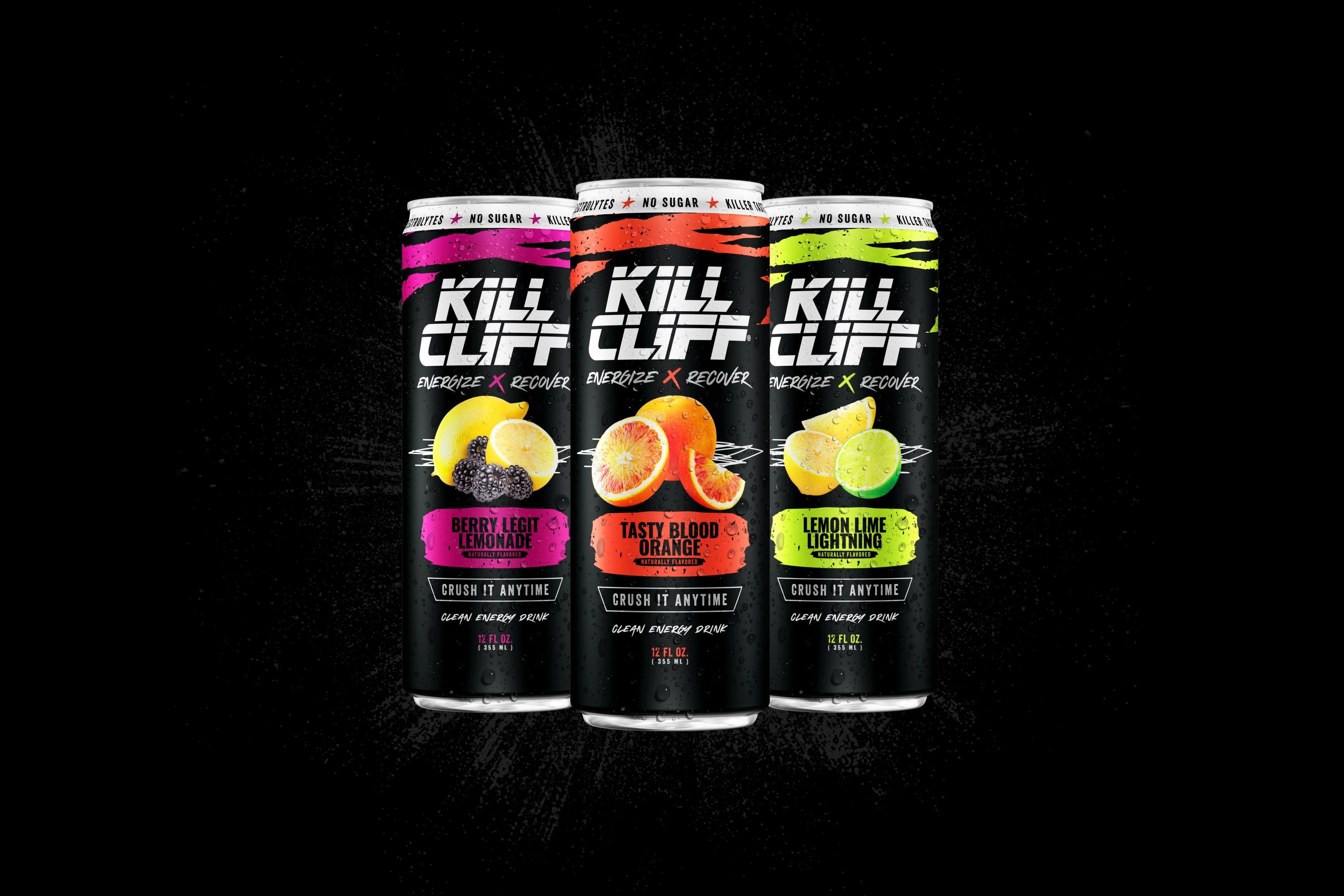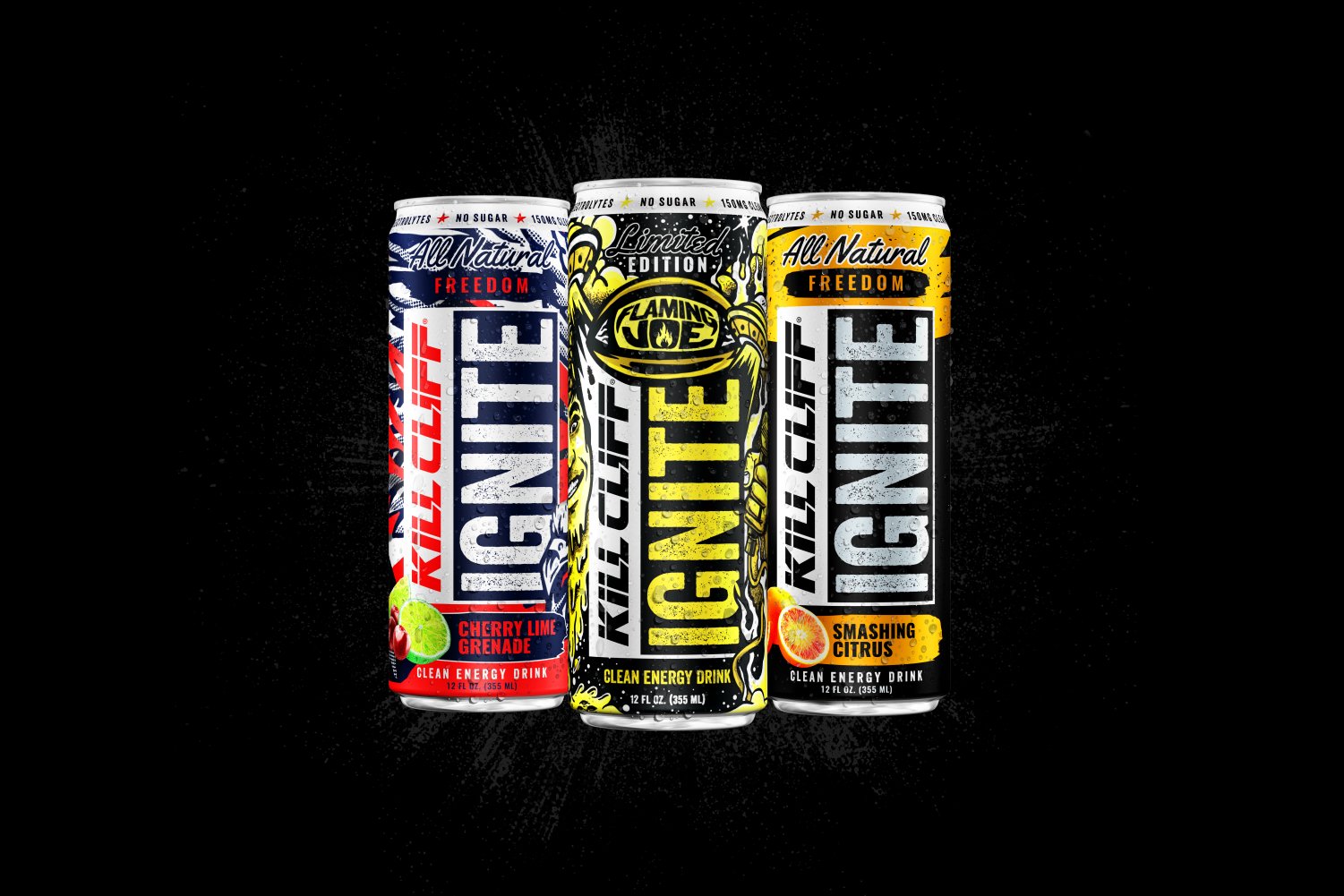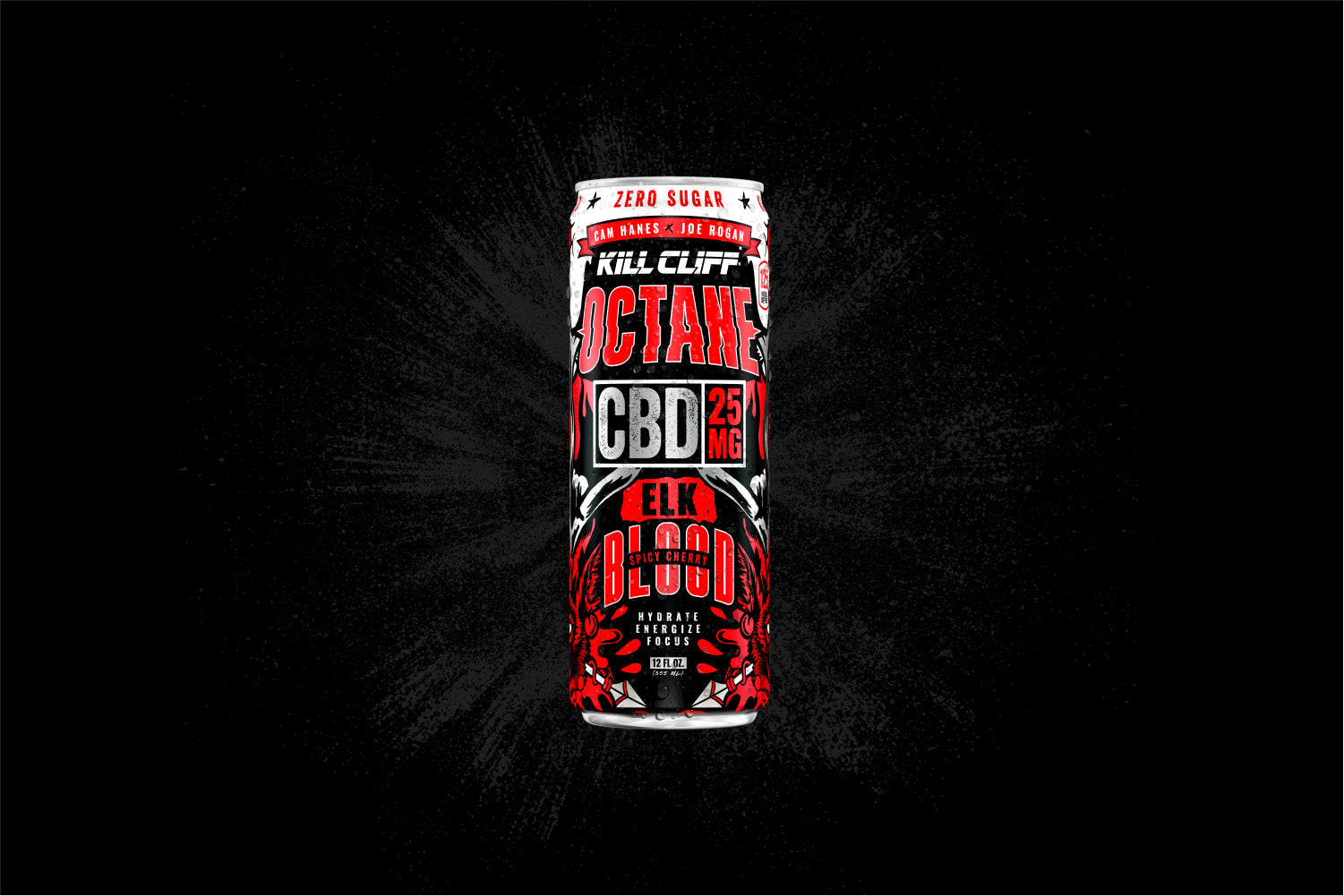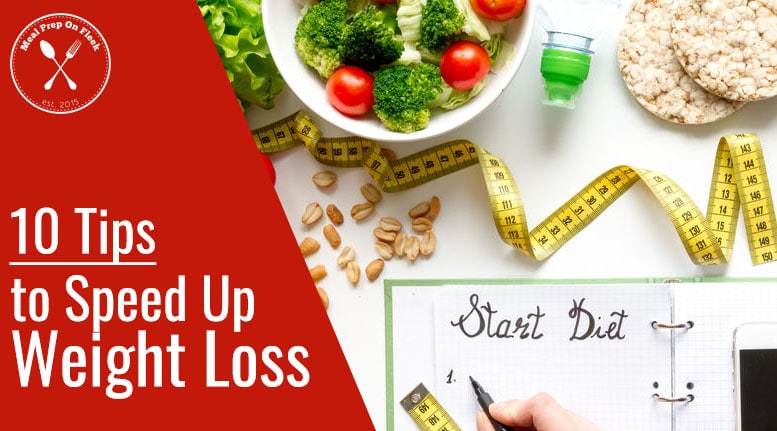HINT: YOU CAN DO 70% WITH FOOD!
There are thousands of weight loss formulas circulating the internet right now and most are touted as the real deal. When starting a weight loss program, it’s important to keep in mind that your success (or lack thereof) may very well be determined by things like your genetics, age, gender, and sheer willpower. The information outlined in this article is meant to help you achieve a number of things including:
- Reduce your appetite
- Generate weight loss quickly
- Boost your metabolism so you burn more fat
We’ve assembled a list of ten simple things that you can do today to speed up weight loss without investing too much of your time or energy.
-
PLAN A HEALTHY DIET
Each one of your meals should include a protein source, healthy fats, and low-carb vegetables to give you a
fuller nutrient experience. If you set your meals this way you will lower your carb intake to the recommended range of 25-50 grams per day. Your protein sources include:
- Meats: beef, chicken, pork, bacon, lamb, etc.
- Fish and seafood – this includes salmon, trout, shrimp, lobster, etc.
- Eggs – the best type are pastured eggs or ones enriched with omega-3
The importance of protein in your diet cannot be overstated. Multiple studies (1,2,3) have shown a correlation between a protein-rich diet and high metabolism. Also, protein helps to reduce obsessive thoughts about food by over 50%, and it makes you feel fuller during the day so that you automatically eat fewer calories. Here’s a list of low-carb vegetables to include in your diet:
- Spinach
- Kale
- Broccoli
- Brussels sprouts
- Cauliflower
- Cabbage
- Lettuce
- Celery
- Cucumber
Feel free to load your plate with these low-carb vegetables – you can eat large amounts without exceeding the recommended amount of carbs per day.
A diet that includes meats and vegetables contains high amounts of minerals, fiber, and vitamins – which means there’s no physiological need to eat grains.
Your fat sources include:
- Butter
- Olive oil
- Avocado oil
- Coconut oil
- Tallow
-
EAT BREAKFAST
If you don’t eat a healthy breakfast every day, your body automatically goes into starvation mode, so your metabolism slows to a crawl as a way to conserve energy.
A nutrient-dense breakfast strengthens your metabolism. A study was first published in the Journal of Epidemiology that showed that people who skipped breakfast were 4.5 times more likely to suffer obesity as those who took time to eat in the morning. So what should you have for breakfast?
Foods that are slow to digest are the best. You may try combining lean proteins with fats and complex carbohydrates, such as found in this particular power breakfast: one omelet (1 egg, 2 eggs whites), a half cup of onions and mixed peppers, half cup of cooked steel-cut oats combined with frozen berries and a teaspoonful of omega-3 fish oil.
-
EAT SMALLER MEALS
To lose weight successfully, you need to burn more calories than you consume; which means you have to control your portions. Portion control doesn’t necessarily mean you’re doomed to a growling stomach. It’s a way to make sure you eat fewer calories. Here’s how to eat smaller meals:
- Start with a glass of water. Before you sit down to eat, drink a large glass of water. According to Dawn Jackson
Blatner, author of The Flexitarian Diet, filling up on water will make it much harder to overeat. - Put on form-fitting clothes. You don’t have to squeeze into pants that don’t fit; however, wearing a comfortable
outfit with a waistband can serve to remind you to slow down and evaluate how you feel when eating. When your clothing gets a bit snugger, it can keep you from overeating. - Include vegetable fillers. Veggies are great for bulking out your meals and reducing calories. You can use spinach
on your sandwich or add valuable nutrients and fiber to stir-fries and pasta. Alternatively, you can add diced pineapples to oatmeal or switch white bread with whole-wheat pita. - Use dinnerwear that encourages you to lose weight. Did you know that the color of your plate can influence how
much food you eat? One study done by Cornell University showed that when people use a plate with a low color contrast they were more likely to serve more food (by up to 22%) than when they used a lighter-colored plate. - Improve the scene for more fulfilling meals. Listen to cool, relaxing music and dim the lights as you take
your meals. This will allow you to enjoy the meal and it also helps to reduce portions. To make the meals last longer, chew slowly and sip some water between bites.
-
DAILY WORKOUT
You don’t always have to exercise to lose a few pounds, but it is highly recommended. For the best results, go to the gym at least 3-4 times a week and include warm-ups, stretches and weight lifting. When you lift weights you burn more calories and your metabolism will stay relatively high (4). Other studies show that you can build muscle and lose a significant amount of body fat (5).
It’s important to mix things up in order to attain your fitness goals – and this is particularly true when working out. To burn more calories in a short amount of time, you may have to step up your intensity. Bursts of speed can cause a powerful fat-burning response in your muscles – so find a way to incorporate short sprints into your workout.
Combining your workouts with fish-oil supplements can also increase your ability to burn fat according to a study published in American Journal of Clinical Nutrition. In the study, volunteers supplemented on six grams of fish oil every day and exercised three times a week. They lost an average of 3.4 pounds after 12 weeks while those who didn’t use any fish supplement saw little shrinkage.
-
BE CREATIVE
Effective dieting is an art. Consider the level of creative output we use when trying to lose weight, and the sheer purpose we put behind every effort. Creativity allows your mind to explore different possibilities and to come up with solutions for any problem. In this case, it helps take your mind off negative thinking, weight gain, fat, and food. As a matter of fact, a keen, positive focus makes all the difference in the world for anybody trying to lose weight.
Exercising creativity also boosts your self-esteem and gives you a sense of pride when you see something that you created with your own hands. So what do you like? You can try coloring books, scrapbooking, collage, sewing, photography, etc. Anything that gives you great enthusiasm can work for your benefit as you take up the challenge to tone your body – and it’s also a good way to meet like-minded people.
-
SLEEP MORE
We have the misfortune of living in a world where sleep is associated with being sluggish. But this isn’t the case.We know from modern science that sleep is a key contributor to a healthy metabolism, so the more you give in to quality sleep, the more equipped your body will be to burn fat. Your body also regulates hormones that influence appetite and energy production so when you don’t get enough rest you inevitably produce low leptin and high amounts of ghrelin, a hormone that triggers food cravings.
If that’s not reason enough to get 8 hours of shut-eye, researchers have shown that lack of sleep is connected to stress – and both are causes of early deaths through strokes and a compromised immune system.
-
AVOID SUGARY SNACKS
This is one of the most important things you can do to lose weight. Sugars and starches stimulate the secretion of insulin – a major fat-storage hormone in the body. When insulin levels drop, the body has an easier time burning fat that is stored in fat reserves. There’s another reason to reduce the amount of insulin in your blood; it allows the kidneys to lose excess amounts of sodium and water, effectively reducing bloating and water weight (5,6).
It is possible to lose over 10 pounds in the first week of eating this way as your body sheds both fat and
excess water (7). Reduce the carbs, lower your insulin levels and you will find that you eat fewer calories and feel fuller for longer (8).
-
DRINK MORE WATER
Drinking more water can help you lose a few extra pounds especially when combined with exercise and a balanced diet. By drinking water you can avoid eating large amounts of food and you’re less likely to consume sugary beverages (which by the way account for over 20% of American’s energy intake).
Cold water can speed up your metabolism (albeit slightly) due to the energy your body uses to warm the water.
Water is a good accessory for weight loss. Drinking enough water every day contributes to a healthy body in general. That said, we don’t mean that you should go around guzzling water all day to prevent dehydration (though it’s not common, it is possible to drink too much water, especially if you’re forcing yourself to drink even when you’re not thirsty).
-
DON’T EAT LATE NIGHT
Most fitness experts recommend limiting the number of carbs you eat at night because as you fall asleep, your metabolism slows down and the carbs you eat have a higher chance of being stored in your body as fat. When you eat early in the day, your body will transform this food into energy; however several metabolic processes are altered during sleep including insulin sensitivity which slows down at night, changing your carb-storing process towards fat.
-
REDUCE STRESS
Your body responds to stress in a harmful (and predictable) manner. When you have a stressful day, your brain
sends a message to the cells to release potent hormones like adrenaline – which retrieves stored energy to power the fight-or-flight reaction. As this is happening, your brain is also telling the cells to produce cortisol so you can replenish this lost energy. This is what causes those hunger pangs and causes you to eat nonstop.
To relieve this hunger, many of us reach for sugar-filled snacks and fatty foods as a comfort because they help
release pleasure chemicals that ease the tension. Soon this becomes an unhealthy cycle of tension and feeding, and it causes weight gain. We have a few tips for managing stress in our hectic day-to-day routines:
- Avoid alcohol and caffeine (and nicotine)
- Exercise more
- Get enough sleep
- Do meditation
- Talk to someone
- Find ways to manage your time
- Eat well-balanced meals
- Take deep breaths
- Limit internet and phone use
- Stretch
As with all well-meaning weight loss guides, take what works for you and leave the rest. Remember no weight loss strategy works if you find it unpleasant. So if you find that you need to tweak this strategy to accommodate a few of your own choices, go ahead, as long as you’re not jeopardizing your own health.











